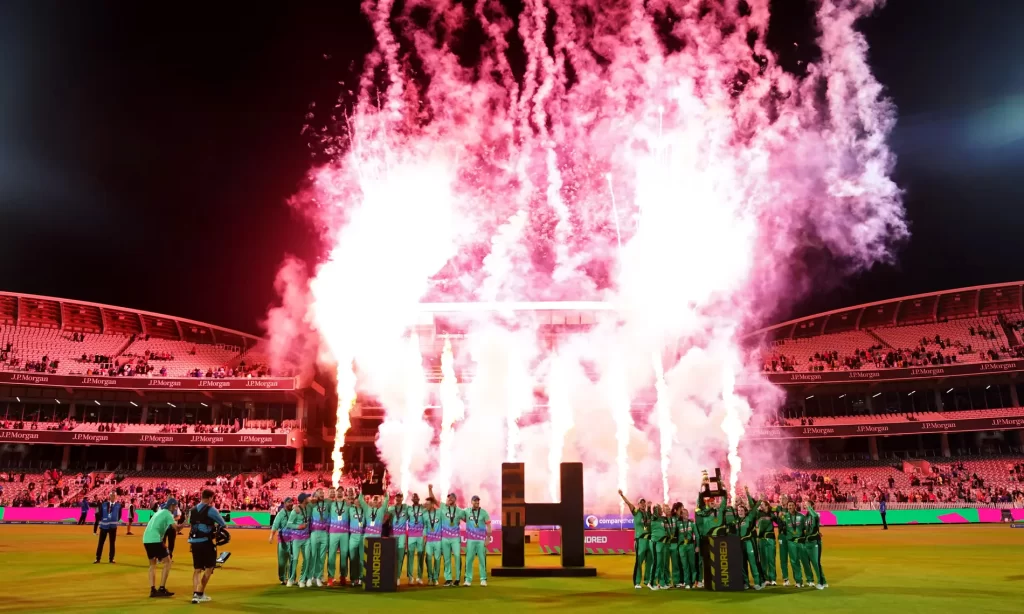A Labour MP has called on the government to review any future decision by the England and Wales Cricket Board to sell its stake in the eight The Hundred franchises to private investors.

The ECB has given the 18 counties plus the MCC until this Friday to give consent to this new “direction of travel” for the sport’s showpiece domestic competition. Under one current ECB proposal, the Hundred Teams will be offered for sale to private investors, with the ECB relinquishing all control over the teams.
John Spellar, MP for Warley in the West Midlands, believes Friday’s vote needs greater scrutiny given the significance of the sale and the ECB’s position as keepers of the national summer game.
“The government should intervene,” Spellar told the Guardian. “This is not just a matter for the ECB. This is one of our national games, and it’s a matter for the public and for the government to have a voice as well.
“If you’re getting public funding, even at one remove, then there should also be full public accountability. The sports minister, Lucy Frazer, needs to intervene to give a government view. If they can intervene on the Daily Telegraph they can intervene on this.” Currently, the ECB receives around £2.5m of public money annually from Sport England.
The plan to sell off the franchises was first floated in February. Originally the ECB had intended to retain 19% of its proposed 49% share in each team. A week ago this proposal was altered to selling its entire stake, with counties given a deadline of 10 May to see if consensus – understood to mean 75% of them – can be reached on the proposal.
“There is no objection to counties getting into a relationship with corporate enterprise and clearly English cricket can generate much larger crowds and revenues from the Hundred,” Spellar said. “That may be the best way of sustaining the game. But whatever you might say about the Premier League in football, for example, they have not handed over the intellectual property, they have not handed over control of the game. This looks like a short-term sugar rush as opposed to long-term building.”

The ECB is not currently proposing the sale of the entire The Hundred competition, just part-ownership of the teams taking part in it. The most likely buyers are a combination of Indian Premier League owners and other private equity investors. Under the current plan, the host counties of each Hundred franchise will retain a 51% stake (as will the MCC as owners of Lord’s).
There is, though, the possibility the cash-strapped counties among them will then sell a portion of this alongside the ECB’s share to offer a majority stake to buyers and thereby maximize value.
In return for agreeing to this arrangement, all 18 counties would retain their annual stipend of more than £1m per year. Despite some concern over the status of non-host counties under this arrangement, the parlous state of county finances will demand the ECB proposals are given very serious consideration.
Should the sale go through, counties outside the eight host venues will find themselves entirely excluded from the Hundred’s operations. Some county members have also suggested selling the teams is a first step towards selling the entire Hundred operation, thereby effectively “privatizing” English domestic cricket in August.
Some estimates have suggested any subsequent sale could raise to £500m to be split across the domestic game. Currently, the ECB receives £220m a year from its Sky Sports broadcast deal, which has been renewed with a small increase until the end of 2028 and remains English cricket’s chief source of income.
Conclusion for Review ECB Plans
a Labour MP is encouraging the government to carefully review the England and Wales Cricket Board’s plans to sell its stake in the Hundred franchises to private investors. The MP stresses the national importance of cricket and the need for public responsibility, specifically regarding the public grant received by the ECB. They emphasize concerns about forfeiting control over the teams and the likely long-term impact on English cricket. The proposal involves selling part-ownership of the teams, with likely customers being Indian Premier League owners and private equity investors. While there are financial benefits and guarantees for the countries, there are also concerns about the exclusion and privatization of English domestic cricket. The possible sale could raise considerable funds, but the importance of the sport’s future needs serious consideration and scrutiny from the government.